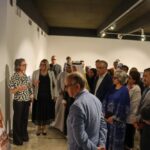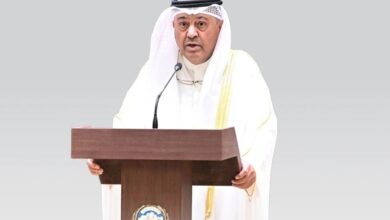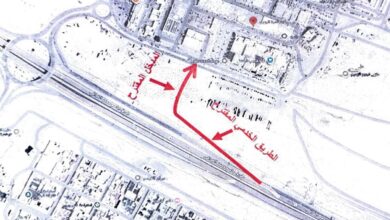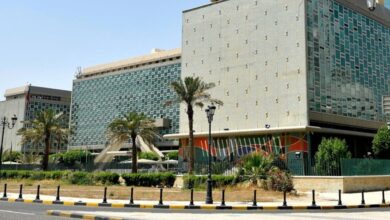NCCAL and EU host exhibition to protect heritage in conflict zones
The exhibition showcases ALIPH’s work in protecting and restoring cultural heritage in Palestine, Yemen, Sudan, and Ukraine.
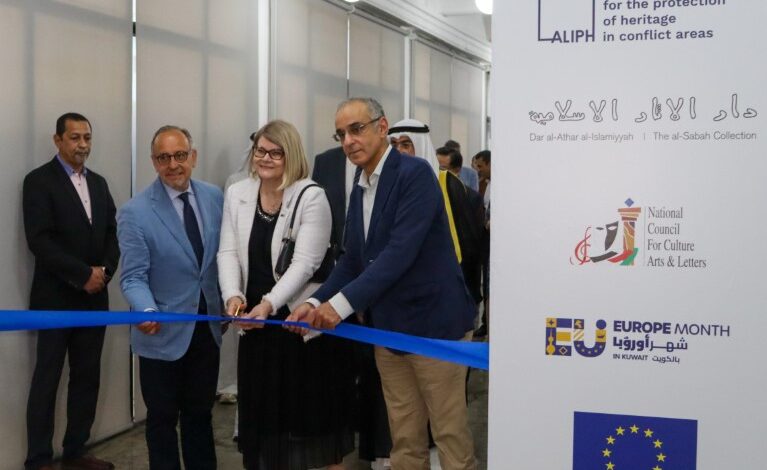
-
“Through joint efforts, we can ensure that future generations inherit the rich history and diverse cultures that define our global heritage. The protection and restoration of the cultural treasures are essential for fostering peace, understanding, and resilience within communities worldwide,” said H.E. Anne Koistinen, Ambassador of the European Union to Kuwait.
-
Founded in 2017 as a public-private partnership, ALIPH is now composed of eight states—China, Cyprus, France, Kuwait, Luxembourg, Morocco, Saudi Arabia, and the UAE.
Under the patronage of Dr. Abdulrahman Baddah Al-Mutairi, the Minister of Information and Culture of Kuwait, an exhibition titled “Restoring Our Past, Preserving Our Future: Protecting Cultural Heritage at Risk” opened at Yarmouk Cultural Centre.
The exhibition, organized by the delegation of the European Union (EU) to Kuwait in collaboration with the National Council for Culture, Arts, and Letters (NCCAL), Dar Al-Athar Al-Islamiyya, and the International Alliance for the Protection of Heritage in Conflict Areas (ALIPH), showcases ALIPH’s work in protecting and restoring cultural heritage in conflict areas like Palestine, Yemen, Sudan, and Ukraine. The exhibition will be open until Saturday, June 8.

H.E. Anne Koistinen, Ambassador of the European Union to Kuwait, stated, “The European Union delegation in Kuwait is proud to join hands with the National Council for Culture, Arts, and Letters, ALIPH, and Dar Al-Athar Al-Islamiyya in organizing this exhibition as part of Europe Month activities in Kuwait. It showcases the importance of protecting culture in conflict areas.
The European Union will continue to advocate for the universal respect of the 1954 Hague Convention for the Protection of Cultural Property in Armed Conflict, help partners protect cultural heritage, and promote documentation, investigation, and accountability of crimes against cultural heritage.”
“Through joint efforts, we can ensure that future generations inherit the rich history and diverse cultures that define our global heritage. The protection and restoration of these cultural treasures are essential for fostering peace, understanding, and resilience within communities worldwide,” Ambassador Koistinen added.
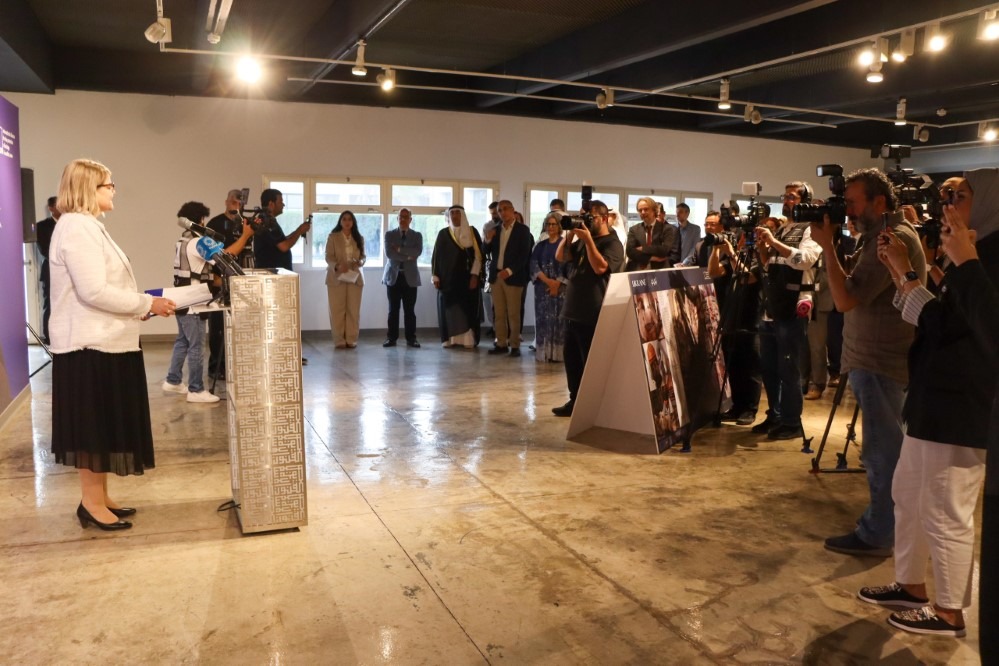
Mr. Valéry Freland, the Executive Director of ALIPH, said, “I would like to thank the EU Delegation in Kuwait, the National Council for Culture, Arts, and Letters, and Dar Al-Althar Al-Islamiyya for their invitation to shed light on the importance of protecting endangered cultural heritage in the face of war, crisis, or environmental threats.
Kuwait was one of ALIPH’s founding member states over seven years ago, and today it is an honor to show the people of Kuwait that their support has helped ALIPH finance and steer over 450 heritage protection projects in more than 35 countries. Moreover, with the support of new donors such as the European Union, ALIPH has the remit to continue and expand its mission so that the women and men behind the cultural heritage can carry out their essential work of preserving humanity’s memory.”
ALIPH is the main global fund exclusively dedicated to the protection and rehabilitation of cultural heritage in conflict zones and post-conflict situations.
Founded in 2017 as a public-private partnership, ALIPH is now composed of eight states—China, Cyprus, France, Kuwait, Luxembourg, Morocco, Saudi Arabia, and the United Arab Emirates—and three private donors—Dr. Thomas S. Kaplan, the Getty Trust, and Fondation Gandur pour l’Art. Switzerland serves as its host country. Since its inception, other public partners—such as the European Union, Monaco, Oman, Romania, and the United States of America—and private foundations have also supported ALIPH.








